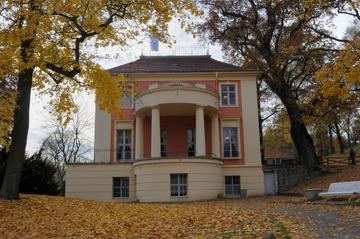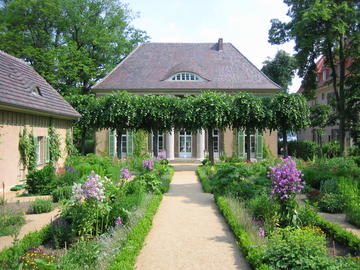A recent visit to Berlin by members of the project team sparked ideas for new research paths and creative collaborations which are now taking shape.
As a result of an inspiring visit to the Schloss Freienwalde, the University of Oxford's Knowledge Exchange Support Scheme has awarded Abigail Green with a grant for an exciting new initiative: 'Artists to Fill the Gap: Commemorating Walter Rathenau in a Jewish Country House'.

Schloss Freienwalde
The project will work with Berlin-based international arts consultancy urKultur to develop an artistic project linking Schloss Freienwalde in Germany with other Jewish country houses through a sustained programme of artistic activity. Schloss Freienwalde was the former home of Weimar statesman and aesthete Walther Rathenau, and 2022 marks 100 years since his assassination. A leading contemporary artist, will create site-specific work at Freienwalde to communicate its unique and complex history to younger, more diverse audiences.
We are delighted that Schloss Freienwalde will also soon be joining our online heritage route, 'Palaces, Villas and Country Houses'.

Villa Liebermann
Our established partnership with the Villa Liebermann has entered a new phase with the announcement of a new Collaborative Doctoral Award (Private actors, public memory and provenance research: Contextualising the Liebermann-Villa, Berlin'). a unique opportunity to explore how the German heritage landscape is being transformed by this shift towards private actors carrying out provenance research, through a focus on the Liebermann-Villa in Berlin, a private museum dedicated to the German-Jewish painter Max Liebermann (1847-1935) and run by the Max Liebermann Society. The successful candidate is now being appointed.
Finally we are delighted that the iconic German-Jewish refugee publication Aufbau, has devoted a special issue to the theme of international Jewish Country Houses and features essays by members of the project team and our colleagues. The inspiration behind this issue came from Monica Strauss, who discovered the connection between her own family's refugee story and the National Trust's Ightam Mote thanks to the JCH project.